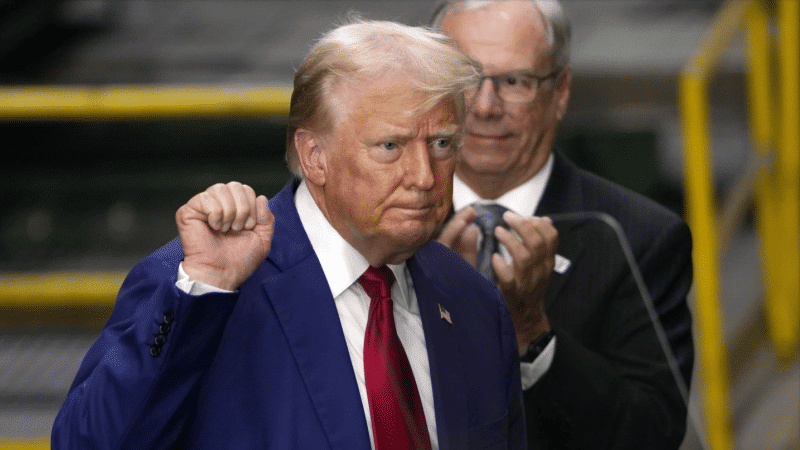Published 02:59 IST, January 11th 2025
Donald Trump Becomes First President-Elect In US History Convicted Of A Felony
Donald Trump has become the first president-elect in US history to be convicted of a felony.

New York: Donald Trump has become the first president-elect in US history to be convicted of a felony. Justice Juan Merchan of the New York State Court sentenced Trump to an "unconditional discharge" for 34 felony counts of falsifying business records in the first degree on Friday. While Trump did not face prison time or probation, the conviction still marks an unusual chapter in the former president's legal journey.
While the sentencing of Donald Trump in New York has concluded with an unconditional discharge, his legal battles are far from over. As the first US president-elect to be convicted of a felony, Trump’s case remains unprecedented.
During a virtual court appearance, Trump reiterated his long-held defence that the case against him was politically motivated. "The fact is, I’m totally innocent," Trump said in his statement to the court, maintaining his stance that the prosecution was a "political witch hunt”.
During the hearing of the case, Justice Juan Merchan acknowledged the unique nature of the case, noting that while the trial itself was ordinary, the circumstances surrounding it were extraordinary. "Never before has this court been presented with such a unique and remarkable set of circumstances," Merchan said.
The Felony Conviction: Falsifying Business Records
As per reports, on May 30, 2024, a jury found Trump guilty on 34 counts of falsifying business records in the first degree, which is classified as a Class E felony in New York. The conviction stemmed from allegations that Trump falsified documents to cover up illegal activities, including campaign finance violations. Class E felonies in New York carry a maximum penalty of up to four years in prison and fines of up to USD 5,000 per count.
Amidst various speculations surrounding the judgment, Justice Merchan opted not to impose incarceration and instead, he sentenced Trump to an unconditional discharge, which means no prison time, probation, or other penalties were imposed.
Trump’s Legal Strategy
Trump's legal team, led by attorney Todd Blanche, has made it clear that Trump intends to appeal the conviction. On several occasions, Trump sought to have the verdict thrown out, citing the US Supreme Court's decision on presidential immunity in criminal cases. The Supreme Court ruled on July 1, last year that presidents have immunity from criminal prosecution for acts performed within their constitutional authority. However, Trump's attorneys argued that this immunity should apply to the entire case.
Earlier, on January 3, Justice Merchan rejected Trump’s argument, stating that the Supreme Court’s decision on presidential immunity did not apply to this specific case. Trump’s appeal was further complicated when, on January 9, both New York's highest court and the US Supreme Court declined to block his sentencing.
What Is Unconditional Discharge
Justice Merchan explained that the decision to impose an unconditional discharge was made after considering the unique circumstances of the case. Under New York law, a court may impose an unconditional discharge when it determines that neither the public interest nor the ends of justice would be served by a sentence of imprisonment. "A sentence of an unconditional discharge appears to be the most viable solution to ensure finality and allow (Trump) to pursue his appellate options," Merchan stated.
This decision provides Trump the opportunity to appeal the conviction, while avoiding any immediate consequences such as prison time or probation. Many legal analysts believe that, given Trump's status as president-elect, the court may have been cautious about imposing a sentence that could disrupt his political responsibilities.
Future Legal Challenges
With the unconditional discharge in place, Trump is now able to pursue his appeal, which could take months or even years to resolve. If Trump's appeal is successful, the conviction could be overturned, and the case could be dismissed altogether. However, if the conviction stands, it will remain on Trump’s criminal record, potentially affecting his political career and future legal battles.
In the meantime, Trump’s legal team has made it clear that this conviction will not prevent him from seeking office, and they will continue to pursue all available legal avenues.
Updated 02:59 IST, January 11th 2025




